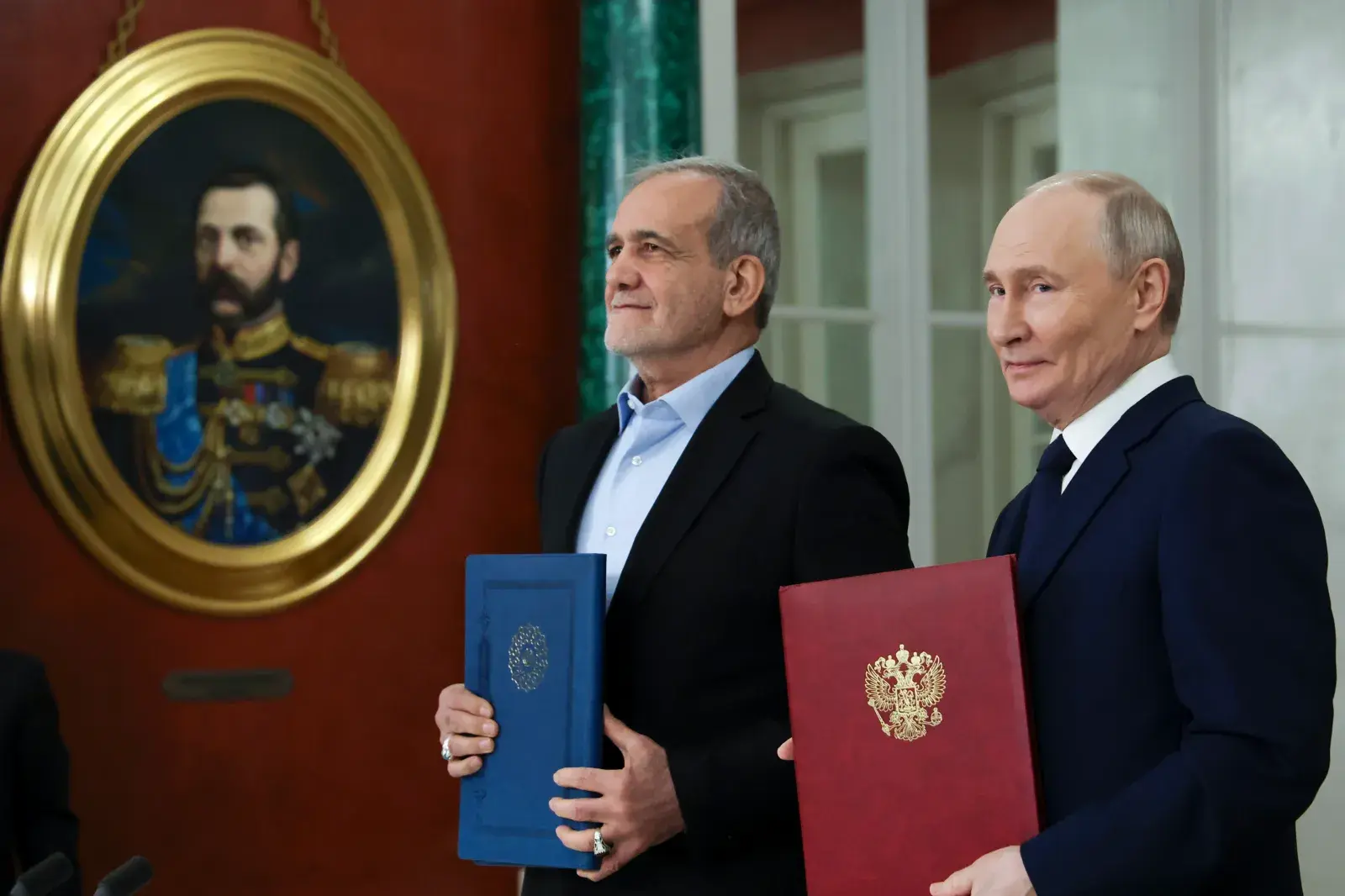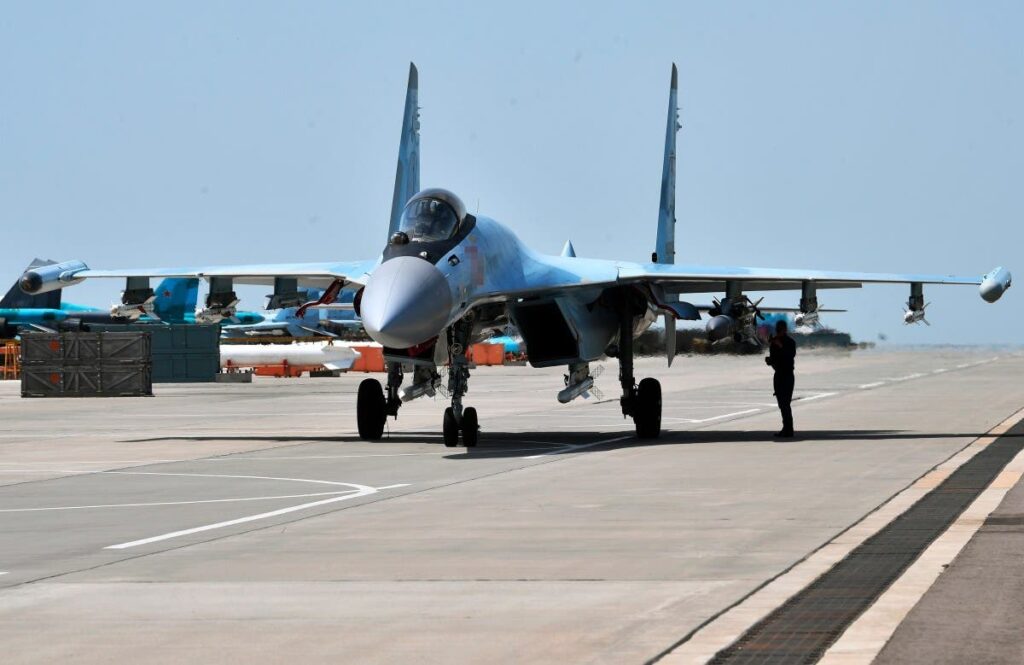Alleged leaks from Rostec, Russia’s state defense conglomerate, suggest that Iran may be preparing to acquire dozens of Sukhoi Su-35 fighter jets in a landmark deal with Moscow—potentially marking one of Russia’s largest arms exports since its invasion of Ukraine.
The documents, which have surfaced online, indicate that Tehran intends to purchase 48 of the advanced aircraft. The move could significantly modernize its air force and deepen military cooperation between Iran and Russia as Tehran faces escalating confrontation with the United States and Israel, while Moscow continues its standoff with the West.
Newsweek has contacted Iran’s and Russia’s foreign ministries for comment.
Why It Matters
The possible Su-35 deal follows Iran’s 12-day war with Israel and subsequent U.S. airstrikes on its nuclear facilities, which exposed the limits of Tehran’s aging air fleet. Upgrading to modern Su-35 fighters would greatly enhance Iran’s ability to deter future attacks and defend key sites.
If verified, the acquisition would not only strengthen Iran’s regional position but also highlight deepening defense ties between two heavily sanctioned states. For Russia, the deal would provide a crucial export success amid sanctions and wartime production strains.
What To Know
The leaked Rostec files, reportedly released on October 2 by the hacker group Black Mirror, include over 300 internal documents detailing export contracts, pricing and delivery schedules.
Screenshots of these documents have been circulating across X, Telegram and OSINT communities. Defense media outlets, including Army Recognition and Defence Security Asia, have reported that customer code “364” in these documents corresponds to Iran, indicating a potential order of 48 Su-35 multirole fighter jets.
The documents suggest that this acquisition will be integrated with advanced electronic warfare and avionics packages developed by KRET, a major subsidiary of Russia’s Rostec Corporation.
One entry, labeled “Code 364,” outlined the $686 million program—with deliveries scheduled to occur in phases over 16 to 48 months, meaning the first aircraft could arrive as early as 2026 and the final batch by 2028. The program includes Khibiny-M electronic warfare systems to enhance defensive and countermeasure capabilities. Army Recognition said that while the materials remained unverified, their formatting and terminology closely resembled authentic Rostec documentation.
Su-35 Capabilities
The Su-35 is a Russian twin-engine multirole fighter with thrust-vectoring engines for exceptional maneuverability. It features the Irbis-E radar, can track multiple targets simultaneously and carries up to 8,000 kilograms of missiles and bombs. Designed to compete with modern Western fourth- and 4.5-generation fighters such as the F-15E Strike Eagle, F/A-18E/F Super Hornet and Eurofighter Typhoon, it serves as a cornerstone of Russia’s air force and export programs.
Russia-Iran Ties
Last month, Iran received a batch of Russian MiG-29 fighter jets, enhancing its aerial capabilities. These deals coincide with the recent Iranian–Russian Treaty on Comprehensive Strategic Partnership, signed earlier this year by Russian President Vladimir Putin and Iranian President Masoud Pezeshkian. This treaty, effective from this month, seeks to bolster bilateral ties across defense, energy and economic sectors.

Algeria’s Role
A separate entry from the leaked documents, “Code 012,” appears to involve Algeria, listing 12 Su-57E stealth fighters and Su-34 support kits valued at $414 million. If confirmed, Algeria would become the first African nation to operate fifth-generation fighters, strengthening its deterrence across the western Mediterranean.
Russia’s Export Struggles
The deliveries underscore Moscow’s role as a key military supplier at a time when Russia’s overall arms exports have fallen sharply. According to the Jamestown Foundation, a think tank in Washington, D.C., shipments dropped by 92 percent between 2021 and 2024, leaving only a dozen active buyers. With production focused on the war in Ukraine, contracts with countries like Iran and Algeria are increasingly vital to sustaining Moscow’s defense export business.
What Happens Next
Neither Tehran nor Moscow has confirmed the alleged Su-35 deal. If authenticated, the agreement could redefine regional airpower, bolster Iran’s defenses against the United States and Israel, and mark a new phase in Russia-Iran strategic cooperation.
Read the full article here

